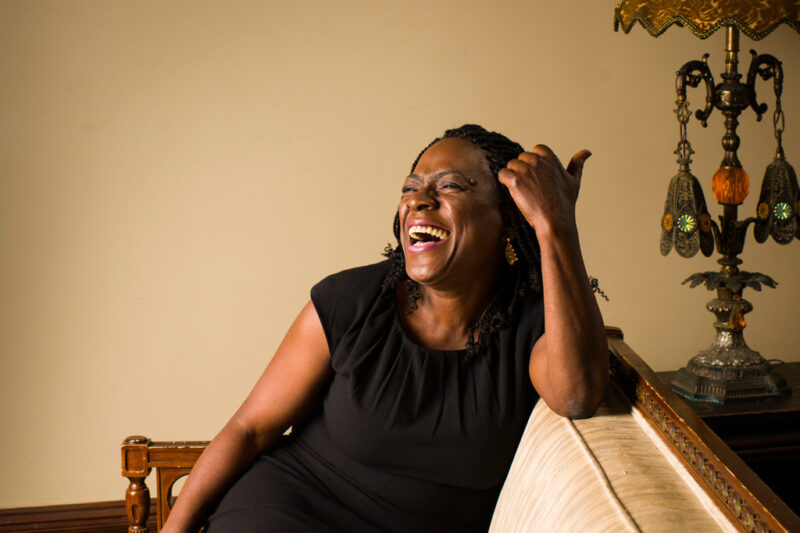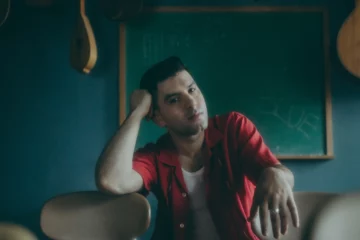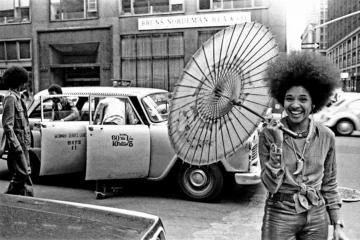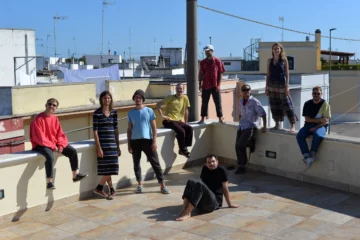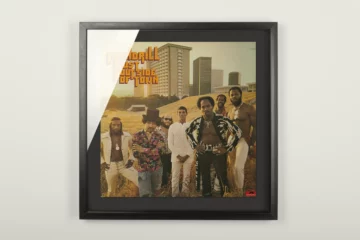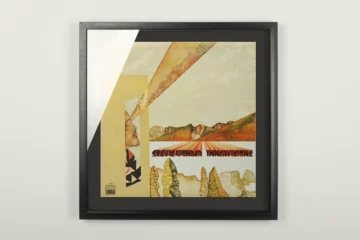Since their debut album in 2002, Sharon Jones & the Dap-Kings have been the embodiment of a soul revival, drawing their musical inspiration directly from the golden era of soul music in the 1960s and 1970s. Daptone Records, the New York label founded by Gabriel Roth and Neal Sugarman for this very purpose, has since released 32 albums in total devotion and humility to this era of music. The productions eschew digital technology in favour of analogue, eschewing adaptation to current listening habits in favour of an unconditional sonic quality that has been achieved not least thanks to a great attention to detail. Last year, Sharon Jones & the Dap-Kings’ album and tour, originally announced for 2013, were put on hold after Sharon Jones was diagnosed with cancer. After months of uncertainty, she has finally announced a tour starting in February. We spoke to her about her return to recording albums and what comes next.
Since their debut album in 2002, Sharon Jones & the Dap-Kings have been the embodiment of a soul revival, drawing their musical inspiration directly from the golden era of soul music in the 1960s and 1970s. Daptone Records, the New York label founded by Gabriel Roth and Neal Sugarman for this very purpose, has since released 32 albums in total devotion and humility to this era of music. The productions eschew digital technology in favour of analogue, eschewing adaptation to current listening habits in favour of an unconditional sonic quality that has been achieved not least thanks to a great attention to detail. Last year, Sharon Jones & the Dap-Kings’ album and tour, originally announced for 2013, were put on hold after Sharon Jones was diagnosed with cancer. After months of uncertainty, she has finally announced a tour starting in February. We spoke to her about her return to recording albums and what comes next.
I saw that the tour has been announced again, so I guess you’re feeling better.
Sharon Jones: I’ll be better by then. I had my last chemo on New Year’s Day, and yes, my body is still sick, but I thought I’d be back by February. I usually give 110 per cent, so maybe I’ll only be able to give 100 per cent this time. I just want to keep going.
What role has music played in your life in the last few months?
Sharon Jones: There hasn’t been a lot of music in my life the last few months. It’s all been about healing.
You recorded the new album over a year ago. How does it feel to return to this material now? Does it still feel right?
Sharon Jones: Yeah, it always feels right, never out of place. We had over twenty songs recorded at the time and then we whittled it down to ten for the album. “Retreat” was the first to be released. And the song shows well how the meaning of the songs has changed. Probably the best way to understand it is to watch the animated video [see below] for it. These wounds are different now, I’m talking about cancer. And I’m over that and I’m picking up the microphone and I’m running around the world and I’m back. I’m back!
The way the meaning suddenly changes there, is that a key to “Soul Music”?
Sharon Jones: You know, I think you’re right. I’ve sung a lot of songs every night over the years, but it’s different every night when you go on stage. It depends on a lot of things: your mood, the audience – the song suddenly feels different.
And isn’t that what the audience wants? I think “Soul Music” is timeless and it’s about associating, attracting the emotions, trying them out, identifying with the story, making it your own or becoming the protagonist. And you notice that the escape point of soul music is very often the pain experienced, the broken heart.
Sharon Jones: But not all soul music is about pain and struggle. They tell a story. For example, “New Shoes” is a happy song. “I got some new shoes…” [sings] Wait, “I got some new shoes” and then “I got my back to leave you with my new shoes on”. So maybe you’re right, it’s a happy song, but there’s always a certain melancholy. I haven’t seen the song like that before.
»I hope that we never lose that soul, that we always keep going.«
Sharon Jones
You’re having a good time and celebrating, but there is also an awareness of pain. That which you have experienced and that which you will come to experience. The difference is that you don’t stay home and cry, you go out with those feelings and dance. Aesthetically, your songs and everything on Daptone Records is borrowed from the music of the late sixties and early seventies. Isn’t that nostalgia?
Sharon Jones: We wanted to make that kind of music from the very beginning, that was the goal of Daptone Records: To keep it old school, the sixties, the seventies, that’s what we wanted to do. Of course we could do rap or pop, but we don’t want to do pop. If we change that, we change everything. Our goal is to keep Daptone Records alive for funk and soul.
Through Daptone and Truth & Soul, soul has become interesting again to a younger audience who may not have such a clear connection to the origins of the music. How did it come about that it suddenly became »fresh« again?
Sharon Jones: It happened because we stayed true to what we were doing. It happened because Daptone, Truth & Soul and all the other labels in the US and England kept going. And I hope that we never lose that soul; that we always keep going.
Besides the musical style, it’s the way the lyrics are handled that defines this music. It’s a technique that goes beyond singing, it’s about making emotions your own, right?
Sharon Jones: That’s soul. And that’s what I do. And it has a lot to do with my age. I’m going to be 58 next year, I was born in 1956. These kids who were born in the 1980s can only imitate this kind of music. And in a way, that’s how I learned. As a kid I listened to all that Motown and Stax stuff and grew up with it, sang along to it. It became part of who I am. The only singer I imitated later was Whitney Houston, because she made the transition to pop, as did the Jackson Five.
Do you think there is a generation that will keep soul alive?
Sharon Jones: I would love to start producing in a few years when I decide to retire and stop running around on stage and doing 150, 200 or more gigs a year. And I would love to travel around and go to churches and look for young singers who have enough soul to keep soul interesting and alive. That will be one of the next things for me: producing and finding new soul singers so that we can go on.

